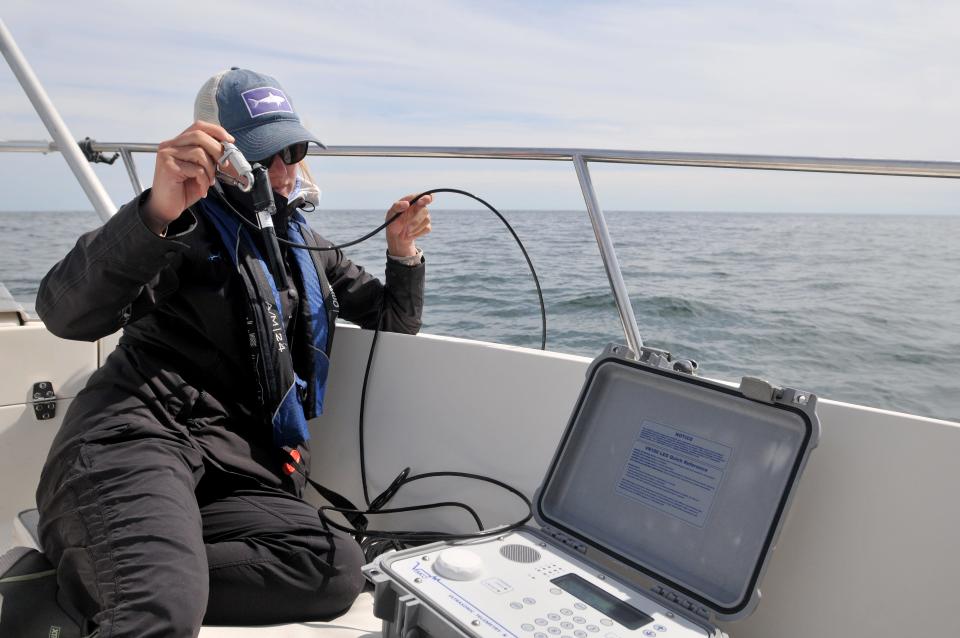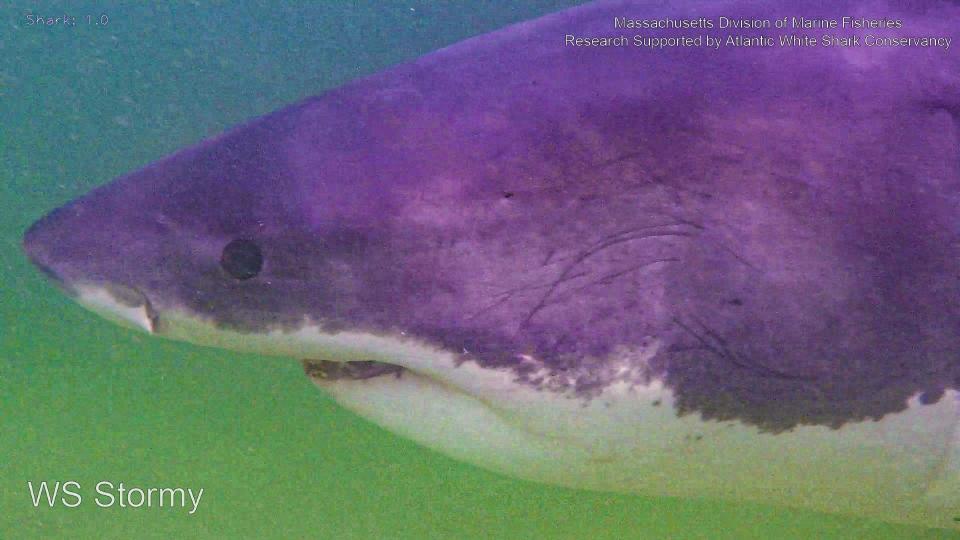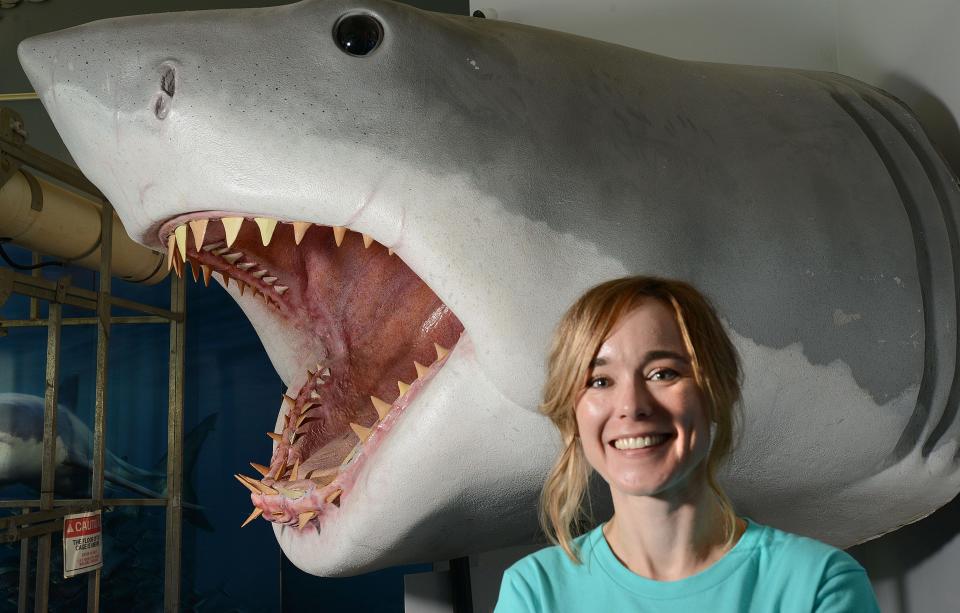Cape Cod shark researchers release 2023 findings. How many sharks did they encounter?
Over the last decade, Cape Cod has emerged as a hotspot for Atlantic white sharks visiting during the summer and fall, and last year was no different.
In all, 80 individual sharks crossed paths with researchers from the Atlantic White Shark Conservancy in local waters over the course of five months — and that's not counting any that evaded the scientists' underwater video cameras.
The Chatham-based research team on Thursday released findings from their 2023 season, which included 22 boat excursions around the Cape between July and November. During that time, research coordinator Ashleigh Novak said the team identified 36 sharks they had never encountered before, plus 44 making a return appearance.
"It's actually less new individuals than the previous year, but we do see more returning sharks every year," she said.

By comparison, the researchers came across 55 sharks for the first time during the 2022 season.
Novak said the findings are based on underwater video footage collected during each research trip, which is used to compare against a database of previously identified sharks.
"It's a pretty extensive process," she said.
The numbers do not include pings from previously tagged sharks recorded by automated receivers deployed off the Cape during the summer and fall. Novak said that data is still being reviewed and will be released in coming weeks.
Besides the data they collect themselves off Cape Cod, the researchers are also excited about the research opportunities afforded by a collaboration with Fisheries and Oceans Canada in the Gulf of Saint Lawrence and Atlantic Shark Expeditions off the coast of Nova Scotia. This has allowed the conservancy to expand the geographic scope of the team's white shark identification work up into Canadian waters.
"It's the second year we've been working with the Fisheries and Oceans Canada, and the first year we've collaborated with the Atlantic Shark Expeditions," Novak said.
They've also been able to add to their data with help from boaters, divers and fishermen up and down the East Coast. This is important because of how far-ranging the sharks can be.

“Individual white sharks travel thousands of miles along the eastern coast of the United States and Canada over the course of the year," said Megan Winton, a senior scientist with the conservancy.
Thanks to the work of the Chatham and Canadian researchers, plus the fishermen, divers and boaters who provided videos or images of white sharks, more than 80 previously unknown sharks were identified last year along the East Coast.
One shark − a 14-foot female named LeeBeth − recently made what the conservancy is calling "shark science history" by journeying all the way to Matamoros, Mexico, which is the farthest west a white shark has ever been tracked into the Gulf of Mexico.
All of the identified sharks are given nicknames and added to the conservancy's rapidly growing White Shark Catalog, which can be accessed by way of the White Shark Logbook that's linked to the conservancy's website, atlanticwhiteshark.org.
Because of the collaborations, Winton said, "we’ve been able to grow the catalog to over 700 individual white sharks documented in the Northwest Atlantic, making it one of the largest photo ID databases of individual white sharks worldwide.”
According to the conservancy, white sharks can be identified from their unique coloration, gill and fin markings and dorsal fin profiles, as well as scars from any injuries.
Researchers from the conservancy work closely with Massachusetts Division of Marine Fisheries scientist Greg Skomal, tagging and collecting underwater video footage of white sharks around Cape Cod. The sharks generally range from Provincetown down to Monomoy, attracted by the Cape's seal populations. White sharks have also been observed in Cape Cod Bay.

Novak said the total number of sharks in Cape waters at any given time is very fluid, but there's certainly not hundreds of sharks present at the same time.
"Some just stop by Cape Cod briefly on their way north, and some are more resident and will hang around for a month or so. Some, for whatever reason, don't come (to the Cape) at all," she said.
One of the most "exciting" sharks the team re-encountered last summer, she said, was an 11-foot female named Stormy, one of the first the team identified in 2015. Her tag data shows she spends winters off the Carolinas and Florida, and has even gone as far as Key West, Florida, but she comes to the Cape every summer and fall.
"She's one of the original ones. She's been around for quite some time," Novak said.
Stormy was one of the last sharks the researchers encountered in 2023. Receivers had picked up her signal around Cape Cod, but the scientists hadn't laid eyes on Stormy in four years.
"It was nice to see her again," she said.
Anyone who captures footage or photos of white sharks along the coast from Canada to the Gulf of Mexico can contribute images and videos to the White Shark Logbook by sending to info@atlanticwhiteshark.org.
Heather McCarron can be reached at hmccarron@capecodonline.com, or follow her on X @HMcCarron_CCT
Thanks to our subscribers, who help make this coverage possible. If you are not a subscriber, please consider supporting quality local journalism with a Cape Cod Times subscription. Here are our subscription plans.
This article originally appeared on Cape Cod Times: Cape Cod shark researchers release 2023 findings. How many were seen?

